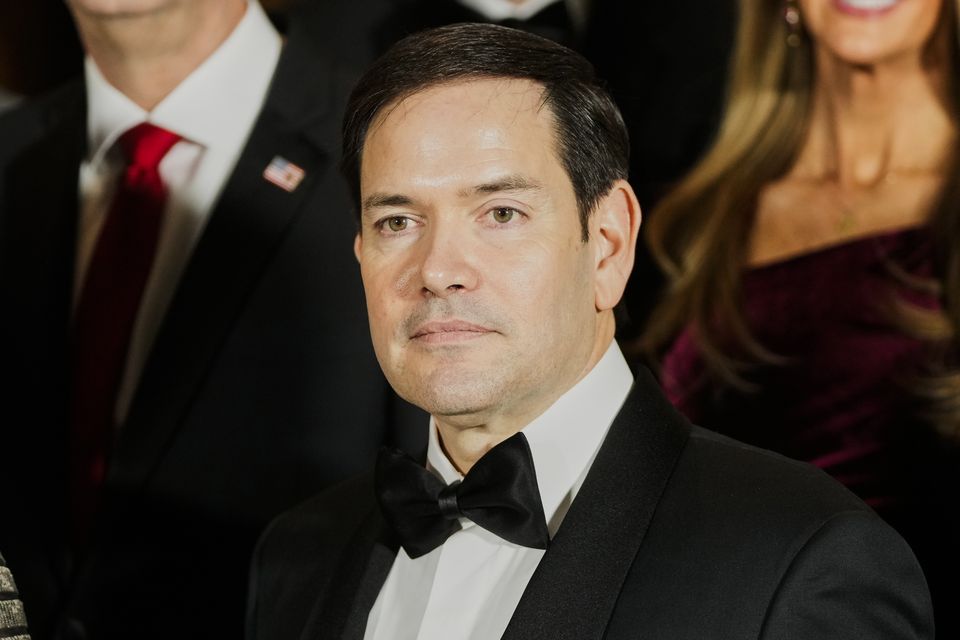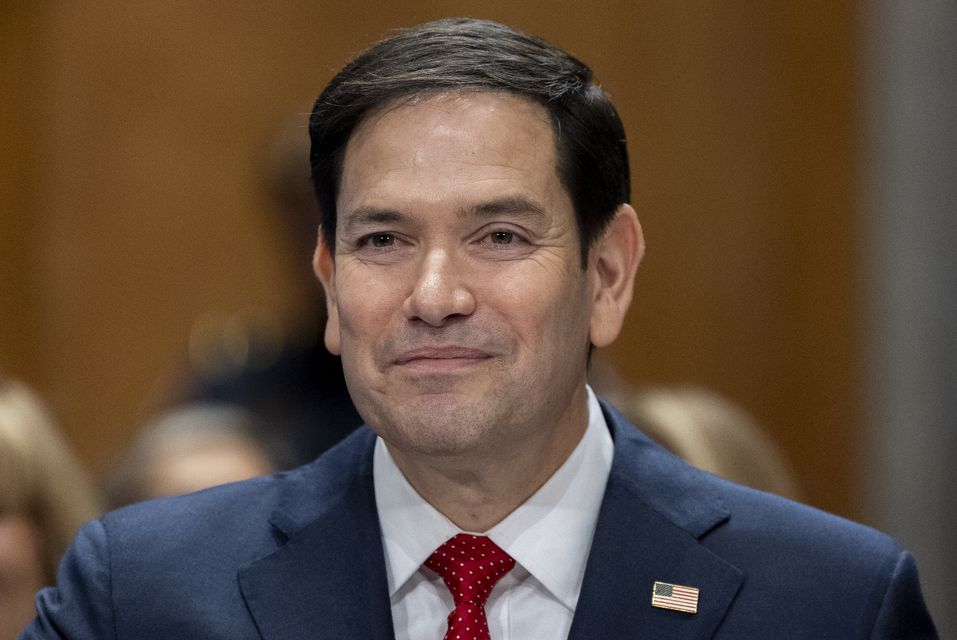The Senate has confirmed Marco Rubio as Secretary of State, voting unanimously to give President Donald Trump the first member of his new Cabinet on Inauguration Day.
Mr Rubio, the Republican senator from Florida, is among the least controversial of Mr Trump’s nominees and the vote was decisive, 99-0. Another pick, John Ratcliffe for CIA director, is also expected to have a swift vote. Action on others, including former combat veteran and Fox News host Pete Hegseth for defence secretary, is expected later in the week.
“Marco Rubio is a very intelligent man with a remarkable understanding of American foreign policy,” senator Chuck Grassley of Iowa, the senior-most Republican, said as the chamber opened.
Marco Rubio poses for a photo with Cabinet picks, other nominees and appointments, at the National Gallery of Art in Washington on Saturday (Mark Schiefelbein/AP)
It is often tradition for the Senate to convene immediately after the ceremonial pomp of the inauguration to begin putting the new president’s team in place, particularly the national security officials. During Mr Trump’s first term, the Senate swiftly confirmed his defence and homeland security secretaries on day one.
President Joe Biden’s choice for director of national intelligence was confirmed on his own Inauguration Day.
With Mr Trump’s return to the White House, and his Republican Party controlling majorities in Congress, his outsider Cabinet choices are more clearly falling into place, despite initial scepticism and opposition from both sides of the aisle.
Senate Majority Leader John Thune moved quickly on Monday, saying he expected voting to begin “imminently” on Mr Trump’s nominees.
Democrats have calculated it is better for them to be seen as more willing to work with Mr Trump, rather than simply mounting a blockade on his nominees.
They are holding their opposition for some of his other picks who have less support, including Tulsi Gabbard for director of national intelligence and vaccine sceptic Robert F Kennedy Jr for health secretary.
Senate Democratic Leader Chuck Schumer said his party will “neither rubber-stamp nominees we feel are grossly unqualified, nor oppose nominees that deserve serious consideration”.
Mr Rubio, he said, is an example of “a qualified nominee we think should be confirmed quickly”.
Senate committees have been holding lengthy confirmation hearings on more than a dozen of the Cabinet nominees, with more to come this week.
Several panels are expected to meet late on Monday to begin voting to advance the nominees to the full Senate for confirmation.
The Senate Foreign Relations Committee advanced Mr Rubio’s nomination late on Monday. The Senate Armed Services Committee and Senate Intelligence Committee, respectively, advanced the nominations of Mr Hegseth and Mr Ratcliffe.
Mr Rubio appears before the Senate Foreign Relations Committee on Wednesday (Alex Brandon/AP)
Mr Rubio, a well-liked senator and former Trump rival during the 2016 presidential race, has drawn closer to the president in recent years. He appeared last week to answer questions before the Foreign Relations Committee, where he has spent more than a decade as a member.
As secretary of state, Mr Rubio would be the nation’s top diplomat, and the first Latino to hold the position. Born in Miami to Cuban immigrants, he has long been involved in foreign affairs, particularly in South America, and has emerged as a hawk on China’s rise.
During his confirmation hearing last week, Mr Rubio warned of the consequences of America’s “unbalanced relationship” with China.
While he echoes Mr Trump’s anti-globalist rhetoric, Mr Rubio is also seen as an internationalist who understands the power of US involvement on the global stage.
Mr Rubio is likely to win bipartisan support from both Republicans and Democrats. He would take over for outgoing Secretary of State Antony Blinken, who has said he hopes the Trump administration continues Mr Biden’s policies in the Middle East to end the war in Gaza and to help Ukraine counter the Russian invasion.
The Senate is split 53-47, but the resignation of Vice President JD Vance drops the Republican majority to 52 until his successor arrives. Republicans need almost every party member in line to overcome Democratic opposition to nominees.
Objection from any one senator, as is expected with Mr Hegseth and several other choices, would force the Senate into procedural steps that would drag voting later into the week.

